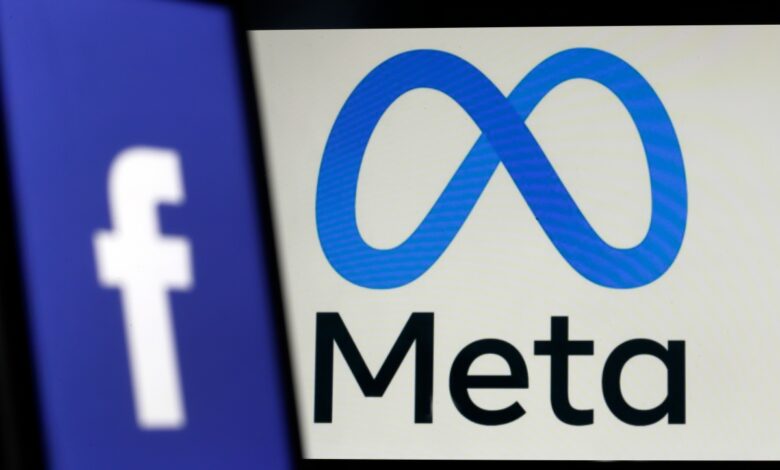Meta faces $600M competitors damages declare in Spain as media house owners pursue privateness breach lawsuit

[ad_1]
Meta is dealing with a serious authorized problem and damages declare in Spain that argues the adtech big’s years of failing to have a sound authorized foundation for processing folks’s knowledge for adverts underneath European Union knowledge safety guidelines additionally constitutes a contest breach for which they need to be compensated financially.
AMI, an affiliation of newspaper house owners whose greater than 80 members embrace the publishers of newspapers together with El País, ABC and La Vanguardia, is behind the swimsuit. The litigants are in search of greater than €550 million (~$600M) for what they describe as Meta’s “systematic and large non-compliance” with the EU’s Common Information Safety Regulation (GDPR).
“Meta has repeatedly did not adjust to [EU] knowledge safety laws, ignoring the regulatory requirement that residents should consent to using their knowledge for promoting profiling, as might be seen from the completely different resolutions of the European authorities competent on this matter,” they write in a press launch in Spanish [here translated into English using AI].
“The systematic and large use of non-public knowledge of customers of Meta platforms, tracked with out their consent all through their digital looking, would have allowed the American firm to supply the sale of promoting house available on the market primarily based on an illegitimately obtained aggressive benefit,” they go on, stipulating their lawsuit argues 100% of Meta’s regional income was unlawfully obtained.
Meta, the proprietor of Fb and Instagram, was hit with a superb of €390M again in January after EU knowledge safety authorities confirmed efficiency of a contract was not a sound authorized foundation for it to trace and profile customers to focus on them with adverts.
That closing GDPR determination — which took years to wind its means although the regulation’s dispute decision and determination making processes however is now being appealed by Meta within the Irish courts — confirmed the tech big to be in breach of the regulation, creating conducive situations for personal privateness litigations (similar to this one) to be filed. So count on to see extra such fits pop up.
AMI’s problem targets Meta’s adverts processing over the interval because the GDPR got here into pressure, in Might 2018, and as much as the top of July final yr. Nevertheless the complainants are usually not ruling out the potential for extending the timeframe of their swimsuit to take account of what they dub “Meta’s persistence in its non-compliance”.
Because the January penalty, Meta has twice switched the authorized foundation it claims for adverts processing within the area. Initially it switched to claiming a foundation known as professional pursuits. Nevertheless a separate (long-running) competitors and privateness problem towards Meta’s superprofiling, introduced by Germany’s competitors authority — which had beforehand been referred to the bloc’s prime courtroom — led to a call by the CJEU in July 2022 that invalidated that foundation too.
The AMI’s problem references an October 27 “urgent binding decision” by the European Information Safety Board — which was issued after a request by Norway’s knowledge safety authority in mild of Meta’s continued processing of non-public knowledge and not using a legitimate authorized foundation within the months following the CJEU determination — to elucidate the doable timeframe extension.
In November Meta switched to claiming consent because the authorized foundation for its tracking-ads enterprise within the EU. Nevertheless the selection it’s devised for regional customers calls for they decide between paying it a month-to-month subscription for an ad-free model of its merchandise or ‘agree’ to being tracked and profiled. This regardless of the GDPR stipulating consent should be “freely given” with the intention to be legally obtained.
Meta’s newest try and attempt to carve its trackings adverts enterprise out of EU privateness guidelines is already underneath problem — with privateness and shoppers rights teams arguing the selection it’s providing customers is illegitimate and unfair.
Though one notably irony right here is that using a so-called ‘cookie paywall’ to assemble consent to trace is a function of various European newspapers’ web sites — which demand customers both pay a subscription to entry the journalism or conform to being tracked in alternate for non-paid entry.
Privateness group noyb, which was behind the unique Might 2018 GDPR criticism towards Meta’s authorized foundation for monitoring and is now challenging Meta’s latest “pay or okay” approach to consent, has additionally been difficult newspapers over cookie paywalls since 2021.
Meta was contacted for touch upon the AMI lawsuit.
[ad_2]
Source link




